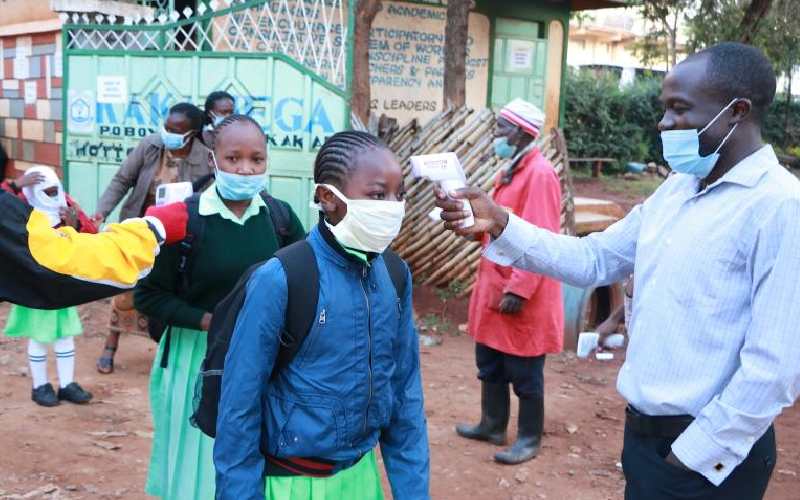×
The Standard e-Paper
Fearless, Trusted News

A Kakamega Primary School teacher takes pupils’ temperature during school opening yesterday. [Benjamin Sakwa, Standard]
The huge burden teachers face in the new school realities emerged yesterday as learners reported to schools for the first time in 10 months.